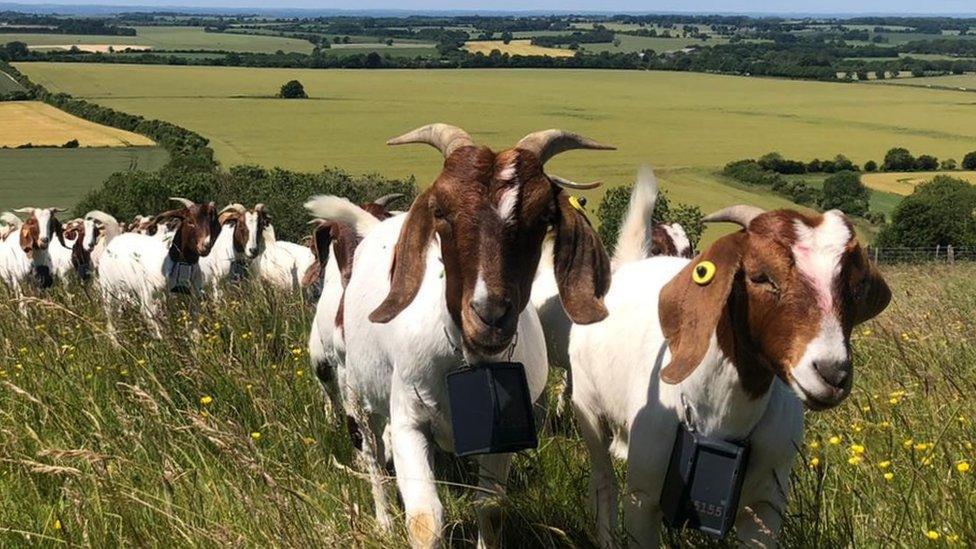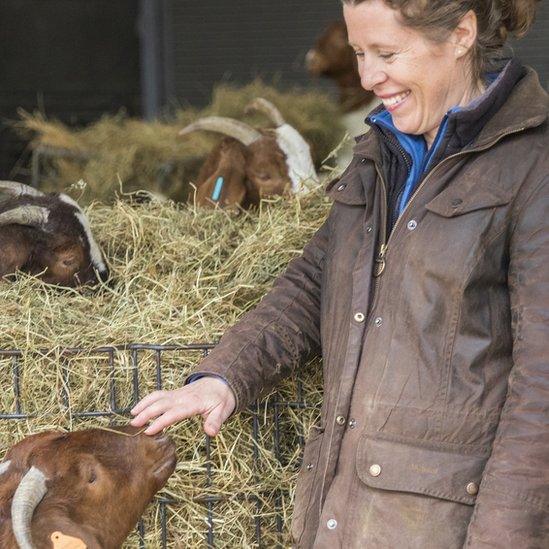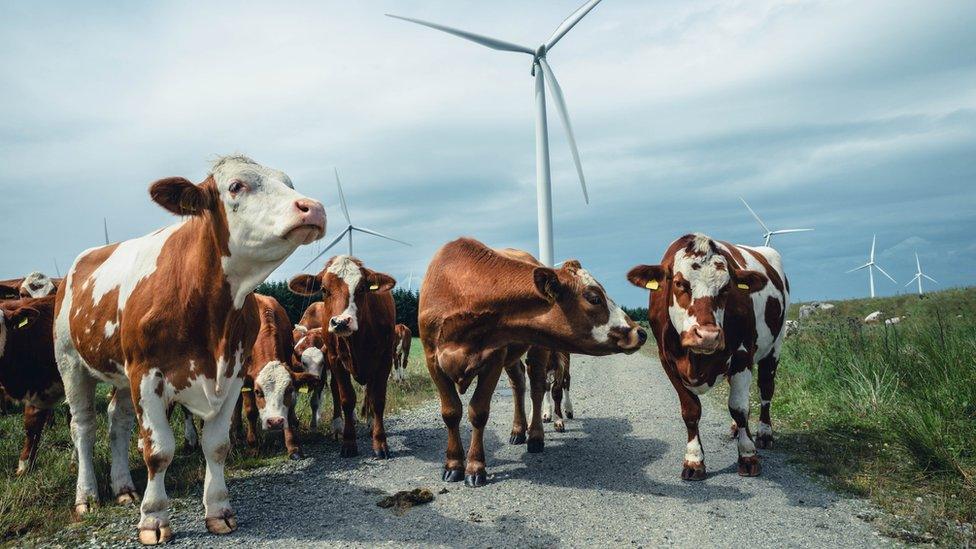Farmers not 'out of woods' after PM rules out meat tax
- Published

The Gourmet Goat Farmer in Swindon breeds Boer goats, the only pedigree breed of meat goats in the UK
A farmer has warned her industry still faces major challenges despite Rishi Sunak's rejection of a meat tax.
Laura Corbett, a livestock farmer in Wiltshire, said her business was penalised by regulations made by "misinformed people in government".
She argued that farmers "had the tools" to help tackle climate change but they need more support from government.
Farming Minister Mark Spencer said there were a number of new schemes in place to support the industry.
On Wednesday the prime minister ruled out proposals for a meat tax as he set out changes to the UK's green policies.
Ms Corbett, who runs a business called the Gourmet Goat Farmer, said farmers were needed to steward the countryside to lessen the damage being done by climate change.
"We want to reverse climate change and we have the tools in our back pockets to do so," said Ms Corbett.
"The possibilities are enormous. But there's a lot of misinformed people in government and elsewhere who totally do not get agriculture, do not get the countryside, who have no trust in their countrymen.
"We're committed to the British landscape, not for a government party term but for 30, 50, 60 years time.
"Unfortunately, the government has total control over us because no one's paying the true price of food," she added.
About £2.4bn per year in farming subsidies that was previously awarded by the EU has been guaranteed by the government for the term of this parliament.

Boer goats arrived at the farm in 2017 to join a family of animals which includes the rare White Park Cattle
Ms Corbett's farm uses conservation grazing, which keeps natural habitats in good condition by preventing both overgrazing and undergrazing, external.
She farms a rare breed of cow known as white park, of which there are less than 1,000 worldwide. By contrast, the current wild population of giant pandas is estimated at 1,864, according to WWF.
But the farmer says she is effectively penalised for keeping a rare breed by rules in England that state cattle killed at 30 months or older must have the spine removed to minimise the risk to humans of "mad cow disease".
White park cows are a slow-growing breed and take longer than 30 months to be ready for slaughter.
"It [the procedure] damages the carcass and means you'll get less cuts of meat, as muscle is removed along with the spine," she said.
"The procedure costs around £150 and devalues the meat, so it reduces the income by at least 10% overall."
Following his speech outlining changes to net zero policies, the prime minister faced criticism for claiming he was "scrapping" proposals to increase air fares to discourage foreign holidays and tax meat consumption, neither of which have ever been government policies.
'Countryside custodians'
Deputy President of the NFU Tom Bradshaw said that taxing specific food groups would be a "regressive approach".
He said it was "more effective to consider provenance and method of production... regardless of where or how it has been produced".
Ms Corbett said that despite a meat tax being ruled out, farmers were "never out of the woods. There's always a change of government".
Any tax would have the "complete opposite effect of what I think... they're trying to achieve," she said.
Farming Minister Mark Spencer said: "This government will always back British farmers who contribute billions to our economy, and are the custodians of our countryside.
"Our flexible new farming schemes - including our landmark Sustainable Farming Initiative which is now open - will deliver positive outcomes for domestic food production and the environment, alongside our continued investment in new technology and our work to boost every part of the food supply chain.
"I will continue to work closely with the sector to take on board feedback to ensure our schemes work in the best possible way so farmers can run profitable and sustainable businesses into the future."
